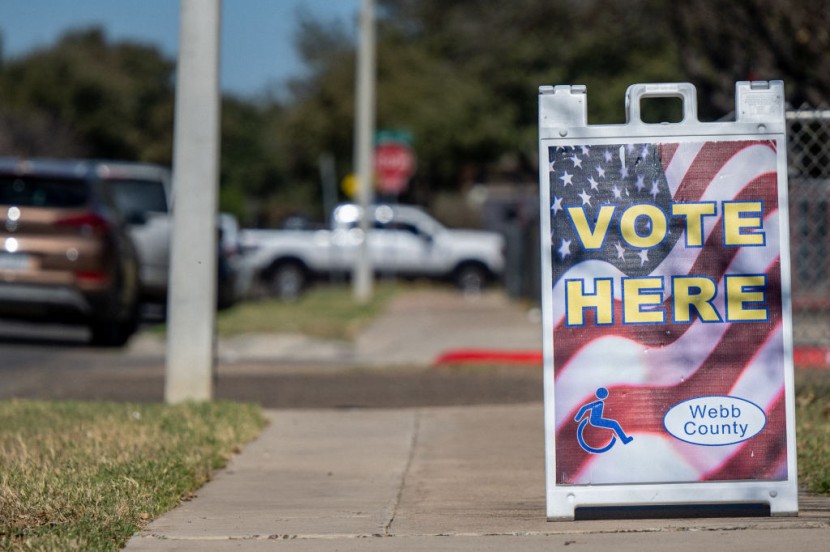
The midterm elections in 2022 will take place in November. The outcome of the midterm elections will have a significant impact on how contenders campaign in the presidential election of 2024.
When Is the Start of the Midterm Election Process?
Tuesday, November 8, 2022, is the official date for the midterm elections 2022. Texas, on the other hand, began the main procedure on March 1, 2022. In New Hampshire, Rhode Island, and Delaware, the primary process will end on September 13, 2022.
After these primaries, all candidates will be set for the 2022 midterm elections where control of the House and Senate will be up for grabs, with candidates fighting for seats in crucial battleground states. The outcome of the 2022 midterm election is noteworthy because it will be used to gauge public opinion on President Joe Biden's first two years in office.
As a result, the event will act as a sort of referendum on Biden's administration. The success or failure of Democratic candidates will then serve as a template for how the presidential election in 2024 will be run, as per The Sun.
Primary Elections Calendar
The party in power usually wins the first midterm election of a president's term. The main parties are selecting their nominees ahead of the November general election. We're now at a pause in the core calendar for 2022. According to the National Conference of State Legislatures and NPR reporting, the major calendar is as follows:
- May 3 - Indiana, Ohio
- May 10 - Nebraska, West Virginia
- May 17 - Idaho, Kentucky, Oregon, Pennsylvania, North Carolina
- May 24 - Alabama, Arkansas, Georgia , Texas (runoffs)
- June 7 - California, Iowa, Mississippi, Montana, New Jersey, New Mexico, South Dakota
- June 14 - Maine, Nevada, North Dakota, South Carolina
- June 21 - Virginia, Alabama (runoffs), Arkansas (runoffs), Georgia (runoffs)
- June 28 - Colorado, Illinois, New York, Oklahoma, Utah, Mississippi (runoffs), South Carolina (runoffs)
- July 19 - Maryland
- July 26 - North Carolina (runoffs)
- August 2 - Arizona, Kansas, Michigan, Missouri, Washington
- August 4 - Tennessee
- August 9 - Connecticut, Minnesota, Wisconsin, Vermont
- August 13 - Hawaii
- August 16 - Alaska, Wyoming, South Dakota (runoffs)
- August 23 - Florida, Oklahoma (runoffs)
- September 6 - Massachusetts
- September 13 - Delaware, New Hampshire, Rhode Island
- November 8 - Election Day Louisiana (open primaries)
- December 10 - Louisiana (runoffs)
Read Also : Gas Price Increase: Rep. Fitzgerald Claims the Biden Administration Invent Excuses To Deal With the Issue
The Odds, Chances in 2022 Midterm Elections
In a president's first midterm election, his or her party may win Senate seats. In five such elections, the president's party has gained seats. The most recent example occurred in 2018. During President Donald Trump's second year in office, Republicans gained two seats. Republicans are optimistic about the midterm elections in 2022. It's simple to understand why.
- Biden's job approval rating is currently at 42 percent. To put this in context, only Truman (33% in 1946) and Trump (41% in 2018) had worse approval ratings at the time of the midterm elections.
- Democrats have 222 seats in the House, which is four more than they need to maintain their majority. As a result, Republican candidates might underperform historical norms yet still retake the House of Representatives.
- So far, thirty-one incumbent House Democrats have declared their decision not to seek reelection, or nearly one out of every seven. Generally speaking, winning an open seat is simpler than defeating an incumbent.
- Inflation has reached a four-decade high. Inflation is generating trouble for nearly six out of ten Americans, who believe it is affecting them or someone in their home. (It's already been dubbed it "Bidenflation" by Republicans.)
- COVID-19 continues to kill almost 1,500 Americans every day.
- In 2021, Americans shifted their support to the Republican Party. At the start of the year, Gallup showed that Democrats were nine percentage points ahead of Republicans in terms of party affiliation. Republicans had a five-point lead by the conclusion of the year. That fourteen-point swing is one of the most significant Gallup has ever seen.
For months, Democratic legislators and strategists have warned that the November elections may be disastrous for the party. Democrats, on the other hand, may score better than projected for various reasons:
- The midterms aren't for another eight months. In politics, that may take a lifetime.
- In the 2020 election, Democrats lost thirteen seats in the House of Representatives. For the party faithful at the time, this was a big disappointment. However, by 2022, many of the most vulnerable Democratic seats will have been lost. House Republicans, on the other hand, must defend more marginal seats.
- Democrats have fared well in the decennial redistricting of House seats. Several state courts have overturned or limited redistricting schemes that favored Republicans disproportionately.
- Democrats have a mathematical advantage in the Senate. Only fourteen Senate seats are up for grabs. Only three of those seats appear to be in serious jeopardy, and each incumbent is seeking reelection.
- Because of Republican voters' rightward shift, the Republican primaries may nominate ideologically radical candidates, alienating the moderate voters who are needed to win the general election, according to Council Foreign Relation.
Related Article : Hungarian Authoritarian Leader Signals Support For Russia, Calls Zelensky an 'Opponent' After Winning Reelection
@YouTube








